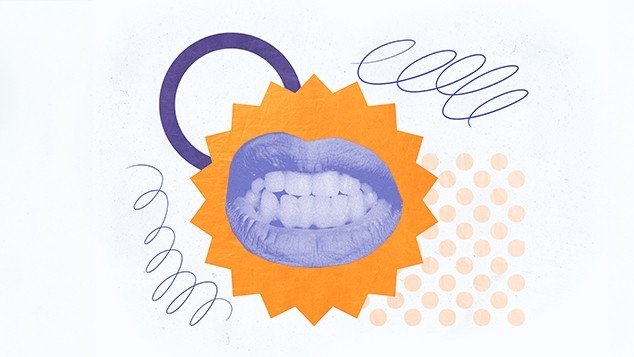- Diseases
- Acoustic Neuroma (14)
- Adrenal Gland Tumor (24)
- Anal Cancer (70)
- Anemia (2)
- Appendix Cancer (16)
- Bile Duct Cancer (26)
- Bladder Cancer (72)
- Brain Metastases (28)
- Brain Tumor (232)
- Breast Cancer (722)
- Breast Implant-Associated Anaplastic Large Cell Lymphoma (2)
- Cancer of Unknown Primary (4)
- Carcinoid Tumor (8)
- Cervical Cancer (164)
- Colon Cancer (166)
- Colorectal Cancer (116)
- Endocrine Tumor (4)
- Esophageal Cancer (44)
- Eye Cancer (36)
- Fallopian Tube Cancer (8)
- Germ Cell Tumor (4)
- Gestational Trophoblastic Disease (2)
- Head and Neck Cancer (14)
- Kidney Cancer (128)
- Leukemia (342)
- Liver Cancer (50)
- Lung Cancer (286)
- Lymphoma (278)
- Mesothelioma (14)
- Metastasis (30)
- Multiple Myeloma (100)
- Myelodysplastic Syndrome (60)
- Myeloproliferative Neoplasm (6)
- Neuroendocrine Tumors (16)
- Oral Cancer (102)
- Ovarian Cancer (176)
- Pancreatic Cancer (160)
- Parathyroid Disease (2)
- Penile Cancer (14)
- Pituitary Tumor (6)
- Prostate Cancer (148)
- Rectal Cancer (58)
- Renal Medullary Carcinoma (6)
- Salivary Gland Cancer (14)
- Sarcoma (238)
- Skin Cancer (298)
- Skull Base Tumors (56)
- Spinal Tumor (12)
- Stomach Cancer (66)
- Testicular Cancer (28)
- Throat Cancer (92)
- Thymoma (6)
- Thyroid Cancer (98)
- Tonsil Cancer (30)
- Uterine Cancer (86)
- Vaginal Cancer (18)
- Vulvar Cancer (22)
- Cancer Topic
- Adolescent and Young Adult Cancer Issues (20)
- Advance Care Planning (12)
- Biostatistics (2)
- Blood Donation (18)
- Bone Health (8)
- COVID-19 (360)
- Cancer Recurrence (120)
- Childhood Cancer Issues (120)
- Clinical Trials (628)
- Complementary Integrative Medicine (22)
- Cytogenetics (2)
- DNA Methylation (4)
- Diagnosis (236)
- Epigenetics (6)
- Fertility (62)
- Follow-up Guidelines (2)
- Health Disparities (14)
- Hereditary Cancer Syndromes (128)
- Immunology (18)
- Li-Fraumeni Syndrome (8)
- Mental Health (118)
- Molecular Diagnostics (8)
- Pain Management (62)
- Palliative Care (8)
- Pathology (10)
- Physical Therapy (18)
- Pregnancy (18)
- Prevention (928)
- Research (388)
- Second Opinion (76)
- Sexuality (16)
- Side Effects (614)
- Sleep Disorders (10)
- Stem Cell Transplantation Cellular Therapy (216)
- Support (402)
- Survivorship (324)
- Symptoms (182)
- Treatment (1778)
How a testicular cancer diagnosis changed my life
4 minute read | Published January 26, 2017
Medically Reviewed | Last reviewed by an MD Anderson Cancer Center medical professional on January 26, 2017
Before I had testicular cancer, I was a really cynical person. I looked at the glass as half-empty. And I saw everything in life as just a struggle to get through.
I’m not going to say that everything has a purpose now, but even the terrible things in our lives can be used for good. And looking back, I can see that a lot of good things did come out of having testicular cancer.
After I was diagnosed, I learned how to be grateful: for the small things and the big things, the bad things and the good things. And I think I am a more positive person now because of what I went through.
Choosing to live after my testicular cancer diagnosis
My testicular cancer journey started in late 2013, when I was 23. I had just come back from an extended trip to Taiwan. The plan was to finish my last semester at the University of Houston, where I was studying business.
But a few months after I arrived home, I noticed a lump on my left testicle. I had a fever, too. Immediately, my mind jumped to cancer, but I dismissed it as paranoia. Then I wondered, could this be the mumps? So, I went to my doctor. He didn’t think the lump was related to the fever. And he wanted me to have an ultrasound.
The test was kind of awkward, but it didn’t last very long. I got a call early the next morning. I needed to follow up with a urologist. I tried not to worry.
I met with that doctor a few days later and learned that I had testicular cancer. Time kind of froze when I heard the news. It just felt unreal. But the moment went on. And I realized I had a decision to make. I could either really freak out, or I could get this taken care of. I decided I wanted to live.
Why I chose MD Anderson for my testicular cancer treatment
There was no doubt in my mind that I wanted to go to MD Anderson for my testicular cancer treatment. While my particular type of testicular cancer is very treatable, it’s also very aggressive. So I needed to take it seriously, and MD Anderson is a top-ranked cancer center with doctors who specialize in my exact type of cancer.
At MD Anderson, I met with Shi-Ming Tu, M.D. He performed a bunch of tests and gave me a formal diagnosis: I had a stage IIB metastatic mixed nonseminomatous germ cell tumor, a type of testicular cancer.
As a part of my treatment, I had two surgeries: one to remove the tumor and my left testicle on June 3, 2013, and the other to remove my left spermatic cord and some lymph nodes on Nov. 13, 2013. In between, I had three rounds of chemotherapy, using a combination of bleomycin, etoposide and cisplatin.
Facing my fears
Coming to MD Anderson for chemotherapy was a really big feat for me. Up until then, I’d had a great phobia of hospitals.
But chemotherapy wasn’t as bad as I had feared. Don’t get me wrong. It was still terrible. But it wasn’t the monster I had created it to be in my head.
Each time I received chemotherapy, I was in the hospital for five days. I experienced nausea and total hair loss. But I had many people there to support me. I also had hope. And hope’s contagious, I think.
Focusing on survivorship
Today, I am three years out from my testicular cancer diagnosis. I show no evidence of disease. So now, my focus is on survivorship.
It’s not that my fear of recurrence is completely gone. But I’m choosing to plan as if I’m going to live a long time. I’m transitioning to a new career and going back to the gym. I’m doing all of these things not to get back to where I was, but to live the best life I can now.
If I had to go back and do it all over again, I would choose not to have cancer. But life doesn’t work that way. The reality is that I had cancer and went through treatment. And I’m grateful that I went through those things because I’m now a more compassionate person with a greater ability to love.
I guess sometimes you have to be dying to realize how to live.
Request an appointment at MD Anderson online or by calling 1-877-632-6789.

Sometimes you have to be dying to realize how to live.
James Coulson Jr.
Survivor





